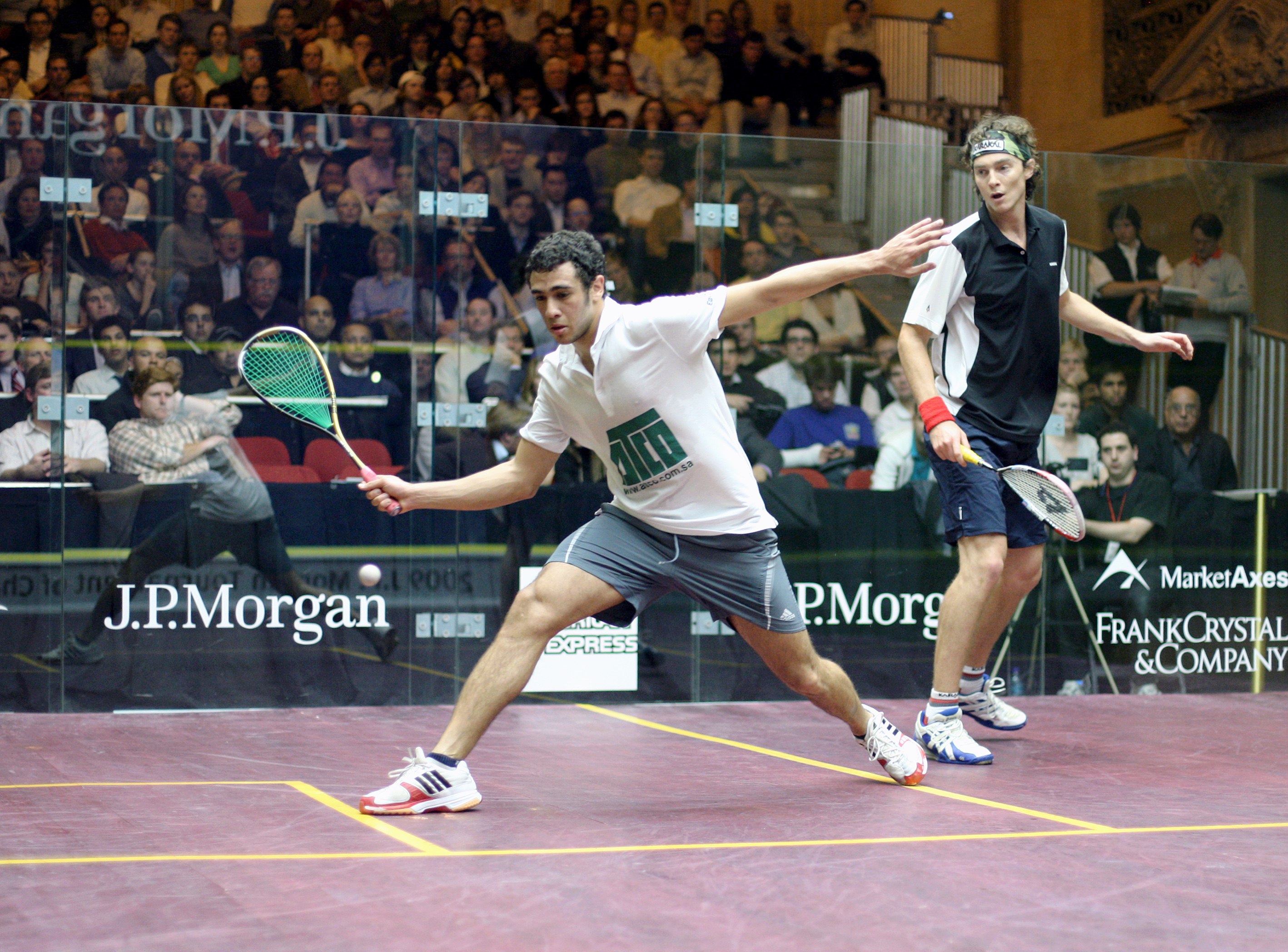By Richard Millman, Director of Squash, Kiawah Island Club
I’ve been stumbling around the four walls of my mind for just over thirty years as I’ve played, practiced, trained and struggled as a student of this game.
For the first few years, despite my contrarian nature, I pretty much just did what people told me to do with no question. And that got me so far. I made a pretty fair attempt at playing the way I had been told to play and became a pretty average player.

Then, for a number of reasons, I became a squash coach. So I started telling people how to do the things I had been told to do. And then I suddenly realized that I didn’t know whether or not the information that I was asking them to accept was correct. I had accepted it at face value without question. Perhaps it was right—after all, a coach had told me to do it, but perhaps it wasn’t right. I just didn’t know. So I decided that I should at least be able to prove anything I asked a student to do to my own satisfaction and then, more importantly, to the student’s satisfaction. And if I couldn’t, I would recommend that the student not follow my advice. That’s right—not follow my advice. Why? Because if a squash player doesn’t believe and understand what they are doing in practice, there isn’t a cat in hell’s chance of them doing it under pressure in the heat of battle.
Of course this got me into all kinds of trouble, as I realized that many of the traditional ideas that had been expounded to me growing up just didn’t make sense. And therein lies the key to our game: it’s got to make sense. It’s got to stand up to logic. If there are any existing or budding philosophers playing Squash out there, here’s a really fun project for you, if you’re up for it and will accept the challenge. Hold the currently published assumptions made in coaching manuals (and the rules and advice to referees) up to the scrutiny of your best logic. And please check the assumptions that I have made in my column. If I’m not being logical, I want to know and I want to correct and polish my thinking.
Which gets me to my main point. How many of us are thinking? As parents, we teach our children to ask questions. Right? Make sure they understand. And yet how many squash players actually ever sit and discuss the ideas and logic behind the sport they love, as opposed to simply accepting advice (even if it comes from a highly respected source) verbatim? I know that many of you who read this column feel empowered by the thought provocation that I try to weave into my verbal web. Which just suggests to me the huge untapped potential of rank and file squash players who rarely in their younger playing lives ever sit and talk to each other about the ideas of the game.
How many of you coaches, teachers and mentoring parents have ever led a discussion of bright, teenage squash players about the logical progression of the game? If you do, then good for you. Too often we suffer from this mentality: “We all know what we’re doing, right? We don’t need to talk about it.” Wrong!
Recently, I played in the British National championships in Manchester, England. Sitting in the bar after my first round, I sat chatting with several top players; people who had been playing at a very high standard for 20 years or more. Here is a snippet of the conversation: “So, Richard, I agree that more than 95% of the time right-handed players play forehand shots off of their right foot. But you would never teach that to a beginner, would you?’
Now remember this is an experienced, intelligent, high caliber player talking.
Judging from his comment, let’s try to extrapolate his view of what one should teach a beginner. It would perhaps run something like this: When hitting a forehand shot, the stroke should be played with the left foot forward. That’s probably what he heard when he learned growing up. And he has probably never discussed it since, until the moment he asked me the question. So what’s the big deal? The big deal is: It doesn’t make sense!
Think about that statement for a few weeks, and I’ll continue this discussion in the next issue of Squash Magazine.





